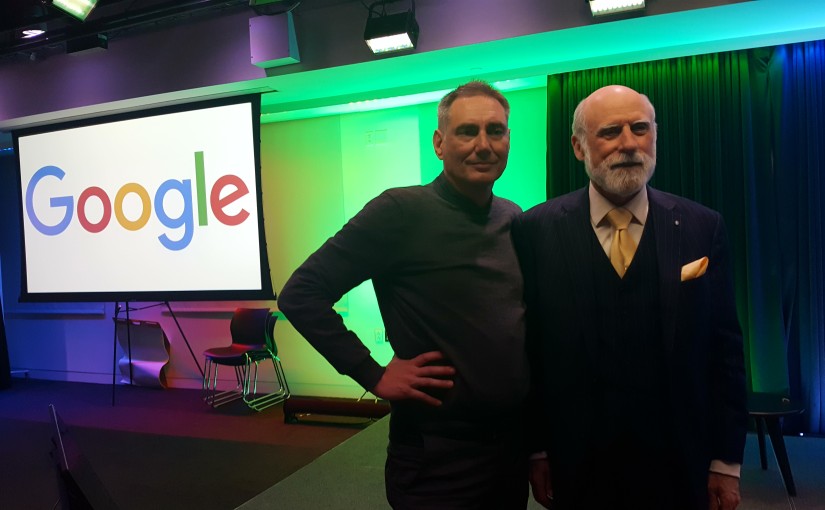
Last week I attended the ‘Innovation for Jobs’ (i4j) Leadership Forum in Washington DC where I had the privilege of hacking unemployment with sixty other thought leaders. It was Tuesday morning that I arrived at Google’s office where our task of disrupting unemployment spread out against the dawning day like a patient etherized upon a table.
Admittedly, we live in a worried world. Financial instability, overconsumption, pollution, energy demands, growing inequality and unemployment… all created by humans and all solvable. But we are locked into a culture of short-term thinking, a quick fix, a fast buck. And most grand ideological projects disappear into a thousand points of contention because experts are firmly tied to existing power structures.
Congressman Bill Foster likened jobs on Wall Street to rural communities that found themselves in crumbling economies two generations ago. He reinforced that artificial intelligence is taking over routine analytics on Wall Street as well as document review in the legal profession because document research is now completely automated.
Employment is changing. Definitions are changing. So are business models. It is unclear what means exist for genuine reform. But can we find smarter ways and make discoveries for a brighter future? That was the objective of the day.
How can we make the ‘human economy’ flourish? There is no magic solution. It is a big deal and coming at us faster than anything. And in the center of it all we need to think about what it means to be human and what our goals are.
In the shadow of Capitol Hill, the White House and all that it currently represents, I started to understand that what we have become is the price that we paid to get what we used to want, as Mignon McLaughlin so succinctly prophesied.
David Nordfors co-founder and co-chair (together with Vint Cerf) of i4j talked about the possibility of a solution by re-framing the problem. He notes that currently, we ask “what is the most efficient way I can spend money”. But perhaps we can also earn money by asking a different question – how much value can this person create for others? What would happen if we started a business where I serve other people by maximizing their value for others?
Why not create a matching engine to determine how much value someone in the world is willing to pay for the combination of efficient spending and maximizing value for others? Nordfors suggests that such companies would actually grow the economy and they would earn by helping people to earn. And the service they would offer would satisfy the need for earning a living and a job becomes a service and the labour market becomes a service market, which has an enormous growth potential because it is a value-serve. And he suggests that we call this a human to human economy.
What is the metric? A human to human win.
Pete Hartigan defined the current opportunity as one where you can create businesses that help local communities and that doing so is actually how to enable those communities to become more profitable. Hartigan has been working on his thesis since 2010 and suggests that this is the magic syllogism. Pete believes that if you make people money and give them reputation, you’ll get engagement and activity. He challenged us: “…perhaps we need to create a type of social currency, rather than a distributed coalition of the people”.

We need more of Nordfors and Hartigan’s consistent far-sighted action and extended thinking. Else we are in danger of losing our sense optimism
Kurt Lewin, recognized as the founder of social psychology understood change well. His early model of change described it as a three-stage process. The first stage he called “unfreezing”. It involved overcoming inertia and dismantling the existing “mind-set”. In the second stage the change occurs. This is typically a period of confusion and transition. We are aware that the old ways are being challenged but we do not have a clear picture as to what we are replacing them with yet. The third and final stage he called “freezing”. In the final stage the new mindset crystallizes and one’s comfort level returns to previous levels
It was Lewin who wisely said: “If you want to truly understand something, try to change it”. Although we are a long way from a new mindset, we are on the path. Let’s try to understand unemployment. Let’s try to change it.
Thank you David, Thank you Vint. Thank you i4J. You are beginning to change the world.

